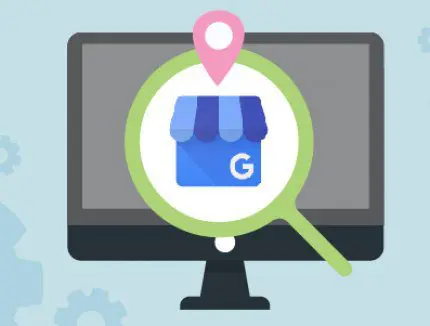Google Business Profiles (GBP) are presented in Google Search and Google Maps for local searches like ‘st asaph street coffee’. They are an organic (free) form of local SEO that helps you gain visibility for local searches for your given product or services.
Unfortunately, we come across a lot of SMB owners who don’t understand the value and importance of setting up their GBPs. Or the fact that over 80% of us search the web to find local information and businesses. So, let’s run through a few GBP basics every SMB should hear the answers to:
- What is a GBP?
- Why should I setup my GBP?
- What can happen if I don’t setup my GBP?
- What should I do with my GBP once I’ve set it up?
What are GBPs?
Even if you’ve never heard of them, you will have no doubt seen GMB listings — they’re the business profiles that you see on Google Maps and in the Local Pack (the local business listings with a map, reviews, locations, phone numbers, opening hours, etc.) in Google search results.
Google has ended the ability to connect Google Ads Auction Insights data to Looker Studio reports. In this post we’ll cover why this data is important for guiding optimisation decisions for Google Ad campaigns. We’ll also discuss our workaround for this new limitation and what it means for you as a business owner that is familiar with receiving this type of info each month in your reports.
What is Auction Insight data?
Simply put, it is a collection of metrics that compare how a business’s Google Ads perform in auctions against other competitors. This info can reveal increased efforts from competitors and signal when to adjust bids, examine quality score, etc, to regain that prominent ad positioning.
Why did Google do this?
The reason for this is a mystery. Google has not made any announcements to explain this decision. The data is still available in Google Ads. However, the ability to adjust how that data is presented is limited in their platform. For us this has reduced the ease at which a quick analysis can be completed. One can speculate that removing this data connection takes some pressure off their infrastructure required for these data exchanges. Perhaps also improving some of their systems from potential security breaches.
Where to from here?
The question we need to ask is is it useful for business owners to receive this level of info? When a decision needs to be made to increase a budget or steer away from a specific keyword then this info should be brought to light. Auction insight data can help clearly demonstrate why this action needs to be taken and provides comparative data to show that these actions had a positive impact. It can be argued that this data should only be accessed and interpreted by a specialist, and presented to business owners when appropriate, such as during a scenario mentioned above.
Our thoughts
While there has always been some PPC specialists on the fence whether to divulge this data each month. Google has forced our hand here. Fortunately we still have access to this important data set to help us steer our efforts. The positive outcome is that we will simplify our reports for you and let you know when and if there are any concerns around increased activity from competitor activity that impacts your ads performance.
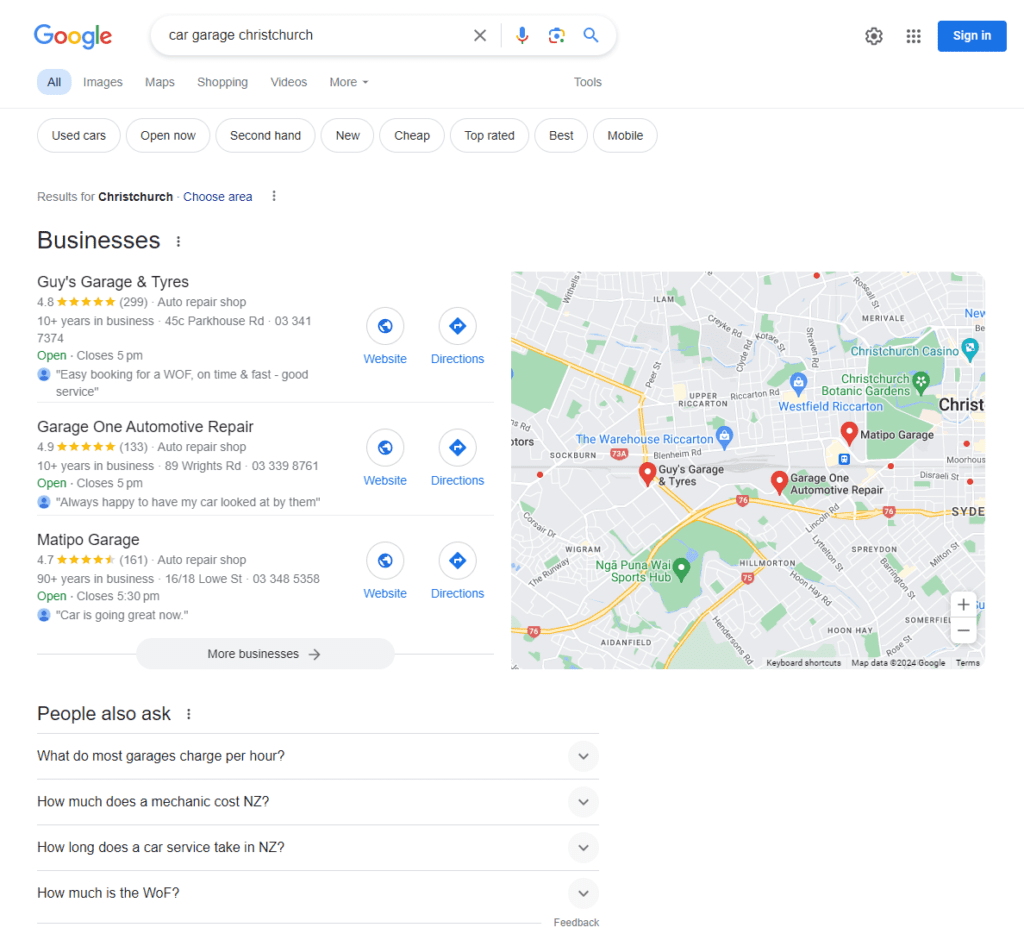
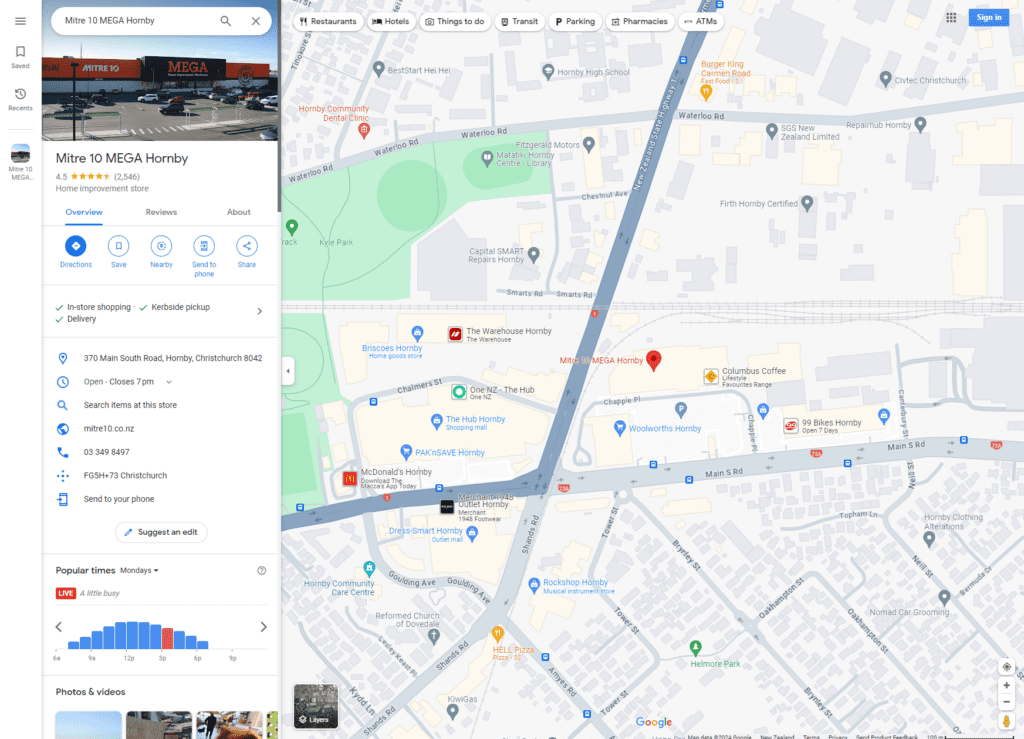
Sometimes, if brand-specific local search is performed, GBP can manifest in the form of a full SCRB (special content results bock) knowledge panel, displaying the searched business’s full GBP. This panel appears on the right hand side of the search results.
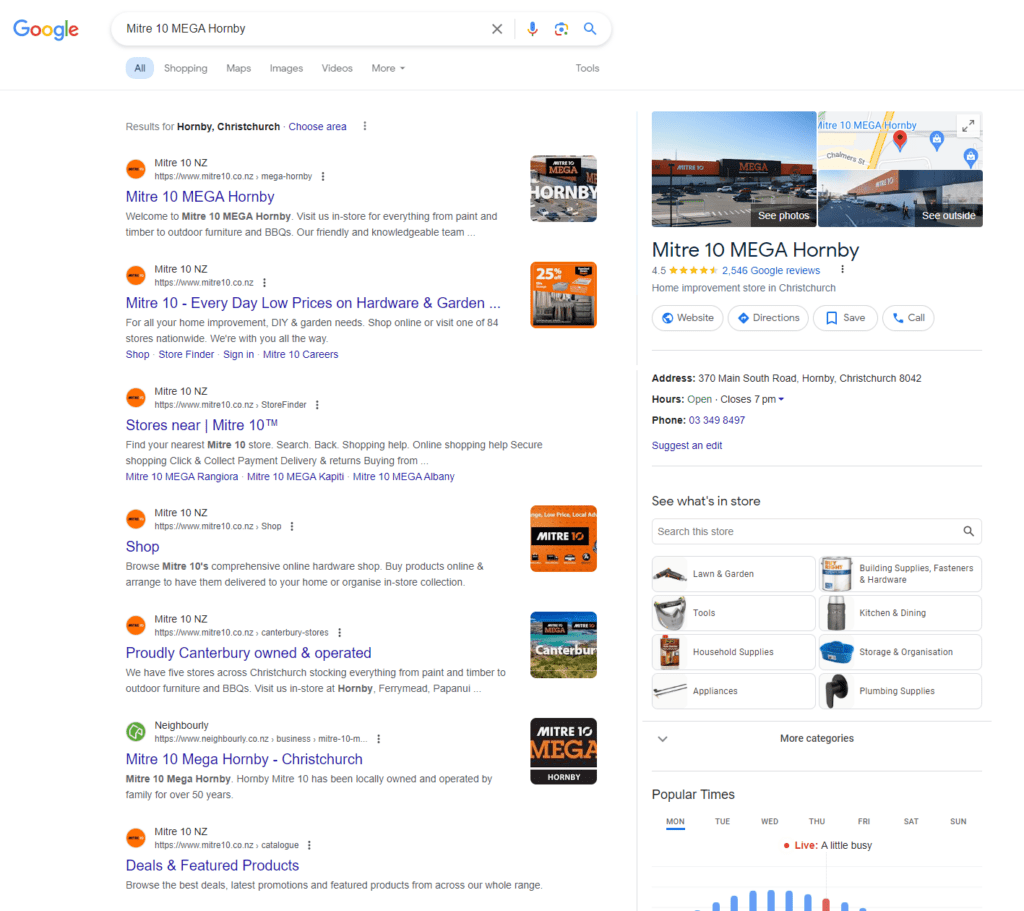
Why should I setup my GBP?
A Google Business Profile gives you a presence in local search results and allows you to communicate effective messaging to users wanting to know about your business. This messaging can take the form of opening hours, contact details, address, images, reviews, and special offers you may have running.
Setting up the profile for your address and business will give you full control over your information and messaging you communicate to users searching in your area. You will receive notifications when a user asks a question, reviews your business, or suggests an edit, meaning you can interact with your online audience and be recognised as a responsive business with good customer service and online reputation management.
Key reasons to setup GBP include:
- Be more visible in results for local searches (i.e., ‘Islington fish and chips’).
- Control messaging and images potential customers see, to show credibility as a trustworthy (and real) business.
- Receive notifications for questions, reviews, and suggestions.
- To allow you to add a location extension to your Google Ads.
- Prevent users or other competitors from creating a profile of your business.
What can happen if I don’t setup my GBP?
If you haven’t created a GBP for your business, that’s not to say one doesn’t exist. Often, business profiles exist in Google and they go unclaimed by the business owner. Despite this, users can still leave reviews and Suggest an edit of important business profile details or Add missing information.
These user suggestions can become live on a GBP, potentially displaying incorrect information about the business, or even claiming it’s closed, non-existent or a duplicate listing!
That’s right — unclaimed profiles are ripe for corruption. Less desirable users (and sometimes competitors) can simply click the Suggest an edit button and suggest changes to the business’s name, location, or hours. Competitors can even claim the profiles themselves, hijacking it to prevent the rightful owner from being able to manage it.
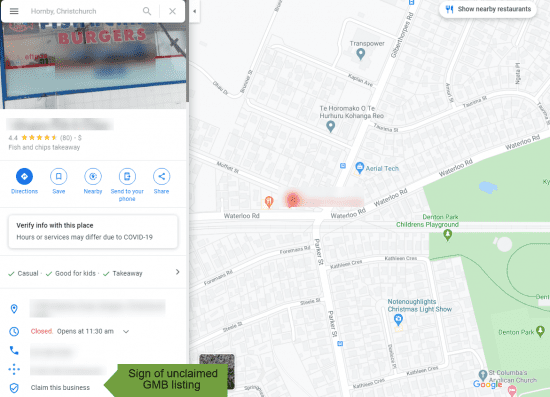
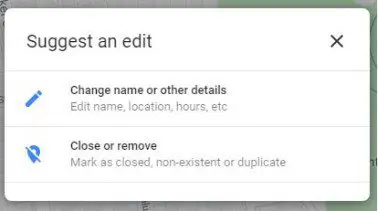
If you’ve successfully claimed and verified your GBP listing and a user suggests an edit of your profile, you have control over whether suggestions are accepted or rejected, meaning you can keep your information as correct and current as possible.
What should I do with my GBP once I’ve claimed it?
Your GBP is a free platform for you to market your business, so you should take every opportunity to personalise your profile and say as much about your company as possible.
This means:
- Completing every field in your Information section, including a description of your business — treat this like a mini About Us website page. At the very least cover NAPW (Name, Address, Phone number, Website). Viewings of complete listings are 29% more likely to convert into a sale and 38% more likely to result in in-store visits.
- Posting photos of the inside and outside of your building, products (or your handy work and vehicle fleet if you’re a service-area business) and your team to personalise and legitimise your company. According to Google, profiles with photos receive 42% more requests for directions than those without.
- Sharing posts highlighting special offers, events, or news about your company. Encourage users to click through to your website or to make contact with concise copy and calls-to-action.
- Utilise the Q&A section to answer your company’s most FAQ, up front. Potential customers can also use this section to ask questions themselves, which you can answer for all users to see.
- Include a call-to-action button to allow users to make a booking or message you directly via your GBP.
Free advertising with unbridled potential
Google Business Profiles offer a free platform designed to help SMB owners improve their local SEO, so you’d be silly not to saddle up, claim/create and optimise your own GBP to increase your visibility in local search results.
We’ve covered the key GBP fundamentals here but be warned things can get complicated if you have issues claiming your profile. If you’d like to know more about Google Business Profiles and our local SEO services, drop us a line.
